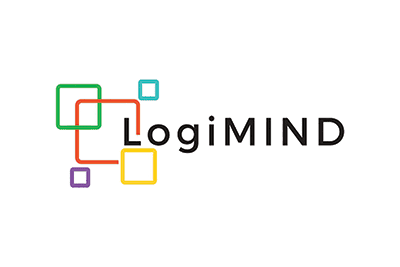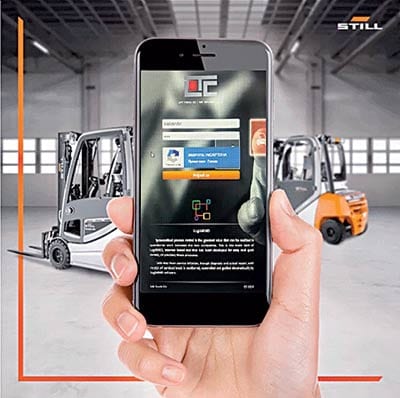Applying information technology to improve the quality of services and after-sales processes
Information technology changes the shape of industry and the way companies generate profits. By analysing our generic value chain, we noted certain anomalies that directly impact on models of improving the quality of services and processes within the scope of internal logistics. The only way to spot irregularities and deviations in the process was to create software, which we’ve called LogiMind.
How aware are companies of the importance of digitalisation and do they know what it implies?

 – Companies usually strive to keep pace with business trends, but that certainly isn’t enough to create competitive advantages. Digitalisation changes the structure of industry, exposing companies to new opportunities, but also to threats. At the same time, the possibility of choosing strategic solutions increases, such as redefining business processes and changing the traditional approach with clients and suppliers. Digitalisation represents only the final outcome of comprehensive reforms that must essentially be implemented much earlier. As a consequence of this, digitalisation remains at the basic level in Serbia. We face daily challenges in the implementation of high-tech solutions, because there is often a lack of adequate infrastructure that would enable the system’s further upgrading.
– Companies usually strive to keep pace with business trends, but that certainly isn’t enough to create competitive advantages. Digitalisation changes the structure of industry, exposing companies to new opportunities, but also to threats. At the same time, the possibility of choosing strategic solutions increases, such as redefining business processes and changing the traditional approach with clients and suppliers. Digitalisation represents only the final outcome of comprehensive reforms that must essentially be implemented much earlier. As a consequence of this, digitalisation remains at the basic level in Serbia. We face daily challenges in the implementation of high-tech solutions, because there is often a lack of adequate infrastructure that would enable the system’s further upgrading.
What does it look like to launch such a complex project from scratch; in your opinion, what are the advantages and disadvantages of such a challenge?
– Creating software isn’t the most complicated part of this kind of project. It is a much greater challenge to understand the work the client has to do and to harmonise our business processes with their value chain in order to improve quality of service. Being part of a team that creates something unique is a benefit in and of itself. Apart from that, the experience you gain during analysis and project workshops is invaluable. For more than two years, which was how long the creation of this software lasted, this implied overviewing all aspects of the business we were doing. The focus was on after-sales, because we concluded that the digitalisation of this sector is currently the most important for the further development of the company. After all the situations we had and all the challenges posed, I can freely conclude that the choice of associates, i.e. the project team, is the most important and crucial segment determining success in achieving the goal.
Considering that you’ve been active in this industry for a long time and that you come across various demands, what formed the basis for your selecting of a field of analysis that would later define the software’s structure?
 – The focus is certainly improving the quality of service – services in this case. Clients expect accessibility and the swift resolving of problems in a safe way. An inevitable factor is also the value of the service provided. In order for us to be able to do all of this, we analysed our service and asked each other lots of questions. How do we function generally? How do we measure certain things? How do we conduct training? How do we receive requests and how do we handle them? Do we have defined processes? Who tracks and controls them? How do we improve processes? How do we utilise anomalies observed? Do we have set priorities? How do we report to colleagues in the service sector? How do we communicate with other sectors in the company? How do we communicate with suppliers? How do we communicate with our clients? And lots of different questions that actually defined the direction in which we should move.
– The focus is certainly improving the quality of service – services in this case. Clients expect accessibility and the swift resolving of problems in a safe way. An inevitable factor is also the value of the service provided. In order for us to be able to do all of this, we analysed our service and asked each other lots of questions. How do we function generally? How do we measure certain things? How do we conduct training? How do we receive requests and how do we handle them? Do we have defined processes? Who tracks and controls them? How do we improve processes? How do we utilise anomalies observed? Do we have set priorities? How do we report to colleagues in the service sector? How do we communicate with other sectors in the company? How do we communicate with suppliers? How do we communicate with our clients? And lots of different questions that actually defined the direction in which we should move.
Could you describe LogiMind in brief?
– That’s a good question, and one often asked by clients themselves. LogiMind is a web B2B application which has the main purpose of ensuring the complete flow of information between the client, on one side, and LTC and its sectors, on the other. After a client initiates a service request, LogiMind will disseminate information within the service sector, warehousing and finances. The software functions in relationships within the company, i.e. between sectors, in a completely identical way. The central position in the software matrix is occupied by a works order that’s actually a link between all sectors, but also a link between the client and LTC. The digitalising of work orders represents the key within the scope of a single service process, i.e. any kind of business dealing with services.
Considering that you do business with global corporations, have you considered expanding your business to other locations?
– Demand and interest exist, which is positive. How this will impact on the future of LogiMind is something that we’re really not able to predict at this time. It is up to us to improve the software, and its application should generate results that will define new standards of industry within logistics, and more specifically in the field of goods transport. Forklifts were once the main topic of conversation. Now they represent only one of the factors of the business model that we have placed on the market, and which relates to the forming of a completely new look at internal logistics. A key factor in the creation of this business model and its success is digitalisation, which actually gives us the opportunity to think in the direction of serving new markets.
Can you tell us more about how you see the development of internal logistics in the future?
– Manufacturers have traditionally been focused on the production and quality of physical goods, in which they can create added value that they will offer to end users. Increasingly demanding markets dictate the pace of innovation, where internal logistics offers a range of possibilities for optimising and improving business. Logistics, as one of the primary activities in the value chain, takes a key place in forming the competitive advantage of companies. By observing global corporations, you can notice a focus on improving logistics processes and models, part of which is represented by internal logistics. The way in which forklift fleets are managed, usage models, controls and optimisation are a segment in which LTC continuously exerts efforts to innovate in ways that that will enable the development of these factors. It remains to be seen whether these efforts will also redefine the future of internal logistics at the global level.